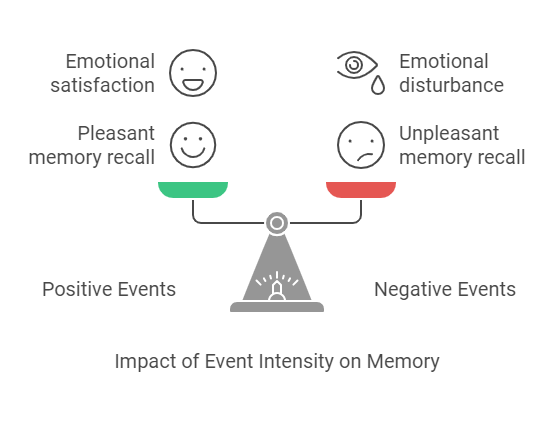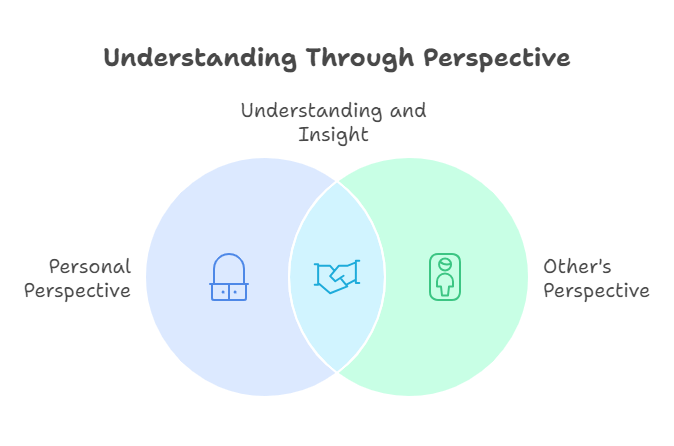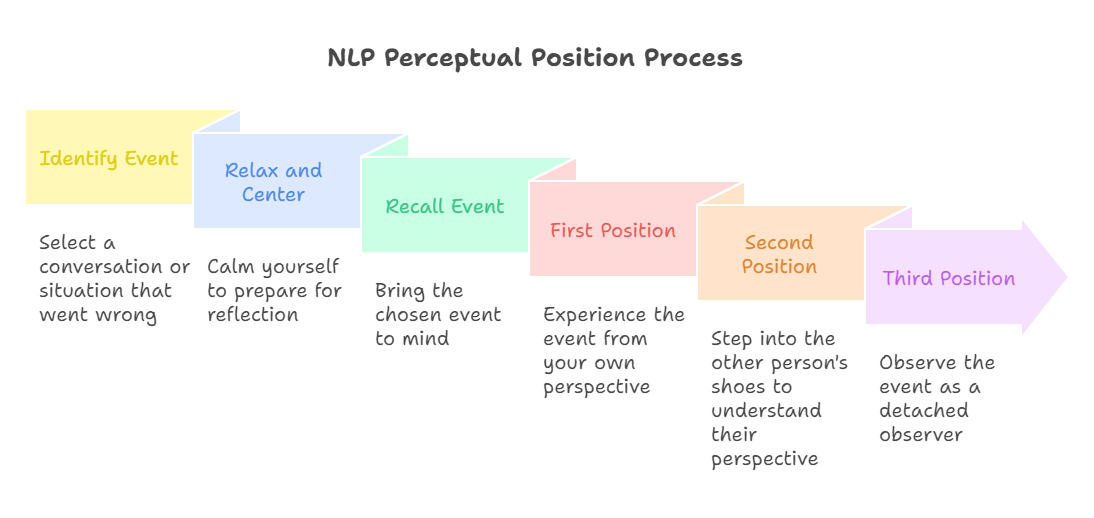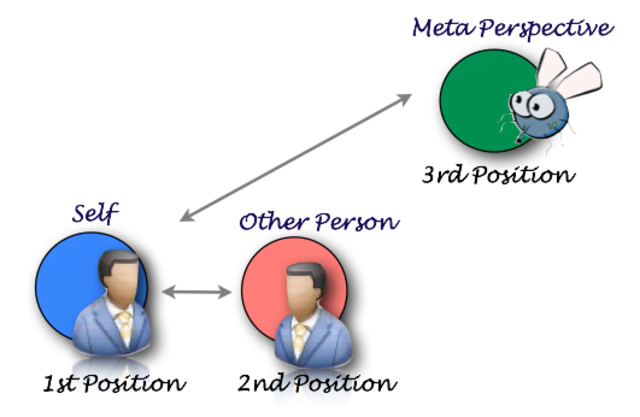In this article we look at the NLP technique of Perceptual Position and how it can help us resolve conflicts and negotiate more effectively by understanding other people and situations better.
In one of our previous articles, we have discussed how People function as per their Maps. Since different people can have different maps, the problem arises when people do not understand other’s maps.

When an event takes place and is of a very high intensity; it gets etched in our memories. If the event is positive, having a strong recall of the same feels good. But, when it is not a pleasant one, it can create some complications and disturbances.
What makes it worse is that we don’t understand the reasons behind the behaviours of others in that particular situation. We are not able to see / understand the situation from their point of view.
This is exactly where NLP process – Perceptual Positions becomes handy.
What is Perceptual Position in NLP?

The NLP Perceptual Position is a simple technique that enables you to see the other person’s point of view; to gain greater understanding of the other person’s perspective of a certain situation.
Understanding the situation from the point of view of other’s not only helps in letting go of the negative emotions associated with the situation but also has a potential to provide powerful insights in terms of strategies to handle similar situations in the future more effectively.
Using & Mastering the NLP perceptual positions process:
- Improves your understanding of other people.
- Enables you to think more flexibly and creatively.
- Provides an opportunity to stand back and consider issues dispassionately
- Helps you appreciate the influence of your verbal and non-verbal behaviour on others, and the influence of their behaviour on you.
- Exploring your performance
- Planning
- Dealing with conflict
- Creating empathy
- Stepping back from challenging situations
- Being your own coach
- Learning new things
NLP Perceptual Position Process:

- Pick an event or episode or conversation that went wrong or different from what you would have liked
- Close you eyes, observe your breath and allow yourself to relax or center yourself
- Recollect that event or episode or conversation
- Step into your body and go through the entire episode. (First Position): seeing, hearing and feeling the situation through your own eyes, ears and feelings. Replicate the exact episode as far as possible.
- Step out of your body and step into the 2nd person’s body. (Second Position): stepping into the shoes of the other person and experiencing (seeing, hearing and feeling) the situation as if you were them. You think in terms of how this would appear or be interpreted by the other person.
- Float out of your body and observe the conversation standing back from a situation and experiencing it as if you were a detached observer. (Third Position): In your mind, you are able to see and hear yourself and the other person, as if you were a third person. Get an objective understanding of the situation and also the knowledge of how you could have acted differently. (since you cannot change the other persons behaviour)
- Float back into your body and make the necessary changes and then perform again
- Float out, see it from an outsiders perspective again (repeat previous step till you get the desired outcome).
Note: It is important to carry these steps of NLP Perceptual Positions under a trained professional if you are new to the process. This is to ensure that you get desirable results.
If you are a coach or a trainer and would like to learn to use perceptual positions and other techniques from Hypnosis, NLP and Mindfulness more effective, you would love the Cognitive Hypnotic Coaching™ Program.
On the other hand if you are a psychologist who would like to develop advanced therapeutic skills with the help of these modalities and even more, Cognitive Hypnotic Psychotherapy™ Program is perfect for you.

